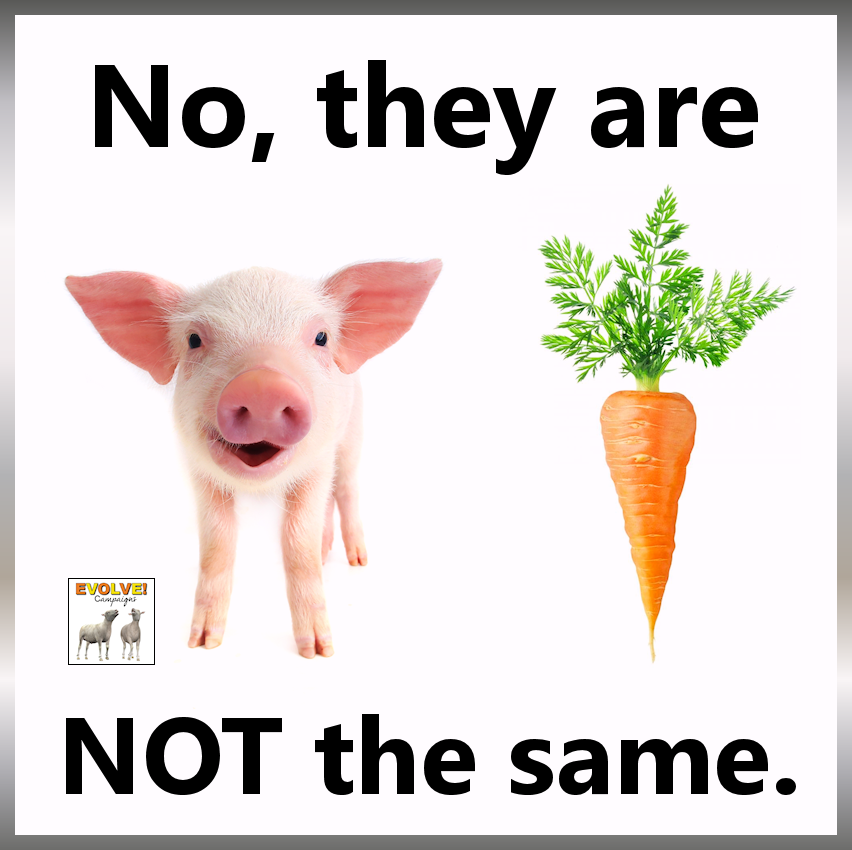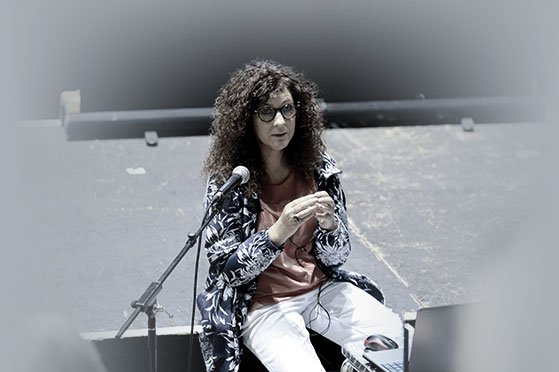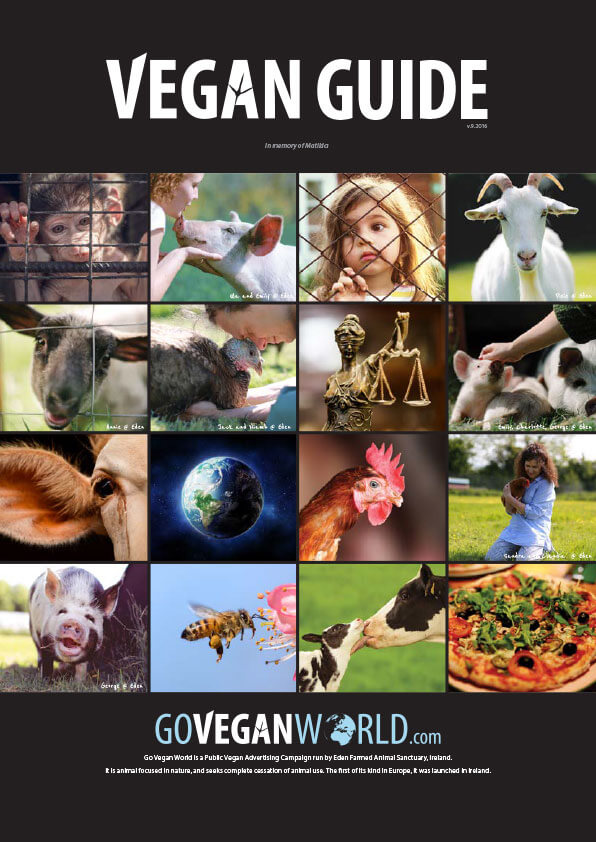FAQ
It is sufficient to know that we do not have to consume other animals to be healthy. Humans certainly ate meat and other animal foods in the past, but that does not mean that we have to do so now. Past behaviour is not an excuse for current violence. There are many examples of unethical behaviours that were socio-culturally acceptable in the past such as male domination of women; violence towards children; ownership of other human slaves; the use of humans in zoos etc. We wouldn’t dream of using any of them to justify continued violation of others in the present. Our past use of other animals is similarly no excuse for our current use of them. Philosophical and moral considerations aside, there are also several indications that the human anatomy is best designed to eat a plant diet.
Milton Mills MD The Comparative Anatomy of Eating
Meat Your Future – Are humans omnivores, carnivores or herbivores?

Confusion surrounding this issue exemplifies the mistaken notion that veganism is:
- a diet that people go on for personal health reasons
- a way of living that involves depriving ourselves of the things we like
Some high protein foods such as seitan are made from gluten. Obviously, these foods are to be avoided if you are avoiding gluten. But there are plenty of gluten free, high protein food sources that are vegan. Search the internet for gluten free recipes for vegans. There are lots of excellent free resources.
Some people have coeliac disease and need to avoid gluten; others experience symptoms of gluten intolerance. A gluten free diet is necessary for coeliacs but as this autoimmune disease only affects 1% of the population, it is not something that most vegans need to worry about. In fact, a recent study in the British Journal of Nutrition suggests that a gluten free diet is not recommended for those who do not have coeliac disease.
Companion animals have been domesticated by us. This is a form of domination that exemplifies human supremacy and is instigated by human desires rather than concern for the other.
Many companion animals are selectively bred to have traits that are appealing to humans such as unusual physical appearance or traits such as docility. Selective breeding has serious consequences for their health and is often responsible for unnecessary suffering and premature death.
Regardless of how well we care for and love companion animals, they are the result of a process of domination and ownership that deprives them of their wild nature and their liberty. We control what and how they eat; if and when they exercise; and how they live almost every aspect of their lives.
Many companion animals endure unnecessary mutilation. Although there are understandable arguments for neutering to prevent more unwanted lives, the act of neutering is an invasive, painful procedure that carries some risk, and it is not a procedure that they consent to. (Please do not take this philosophical position as justification for not neutering companion animals as the consequences of respecting their right to procreate may cause more problems than it solves).
There are few aspects of their lives that are not controlled by us. Many companion animals are kept in environments that they would not choose to live in such as urban environments where they have little or no access to an outdoor life.
While many people take good care of companion animals, others neglect or even harm them physically, sexually and psychologically. Every year countless young, vulnerable, and often sick animals are abandoned when humans tire of them. Countless numbers are euthanized for no other reason than the fact that no one wants them.
If you would like a companion animal, please rescue someone who needs a home. Please never pay someone to breed companion animals. However, it is important that we consider how we can best meet our own desires for companionship and interaction with others in ways that do not involve any use of other animals at all.
Please study the section of this website on Animal Use to gain a better understanding of why vegetarianism is not a rational way of attempting to live ethically.
When we recognise the sentience, and personhood other other animals who are aware of their own lives, it soon becomes clear that we are not only obligated to stop participating in practices that harm them; we are also obligated to accord them the right to life on their own terms, for their own purpose, and to recognise and respect them as equals. This is why veganism is a new paradigm of relating in a radically new way to life in non-human form, respectfully and equally. There is every chance that when we change how we think about other animals, this new way of relating with them will leave us in awe at what we learn when we stop seeing a glass of milk or a piece of meat, and instead see a capable, unique, feeling individual.
Similarly, there is no reason not to go vegan immediately. It might take a few days or a week or two to rid ourselves of the animal products in our kitchens and homes, but there is no need to support any further exploitation. Some people advocate going vegan in stages that are aimed at making it attractive and easy. However, if we, for example, choose to eliminate meat first and cheese last, instead of going vegan now, our behaviour is meaningless to the mother who loses her baby calf for our decision to continue consuming dairy products. If we choose to be vegan most of the time but eat other animals to celebrate a birthday, or because we feel awkward asking for a vegan option at a restaurant, our one non-vegan choice impacts on the individual we consume who lived his or her life in misery on a farm and endured the pain and fear of death in a slaughterhouse for our single meal. If we are vegan 90% of the time, the remaining 10% still impacts in the worst possible way on individuals who do not want to suffer or die. If we choose to eat a plant diet but buy leather our intentions may be well meaning, but they are of no consequence to the cow at the slaughterhouse whose life is taken from her because we support an industry that uses her skin to make shoes. Even if we choose to advocate for or rescue other animals, if we choose something non-vegan such as personal care or cosmetic products that are tested on other animals, our behaviour has consequences for the rabbit whose eyes or skin are tortured in a cosmetic laboratory testing the make up we buy.
When we come to think of our lifestyle choices in terms of individual animals, and when we think of those individuals rather than the vast numbers or in terms of species, it becomes much easier to be motivated to be vegan now. The most important thing is that we stop supporting all our personal use of other animals now. When we realise the consequences of our behaviour for hundreds of individuals every year, we are empowered as individuals to play our role in no longer supporting their misery and death.


